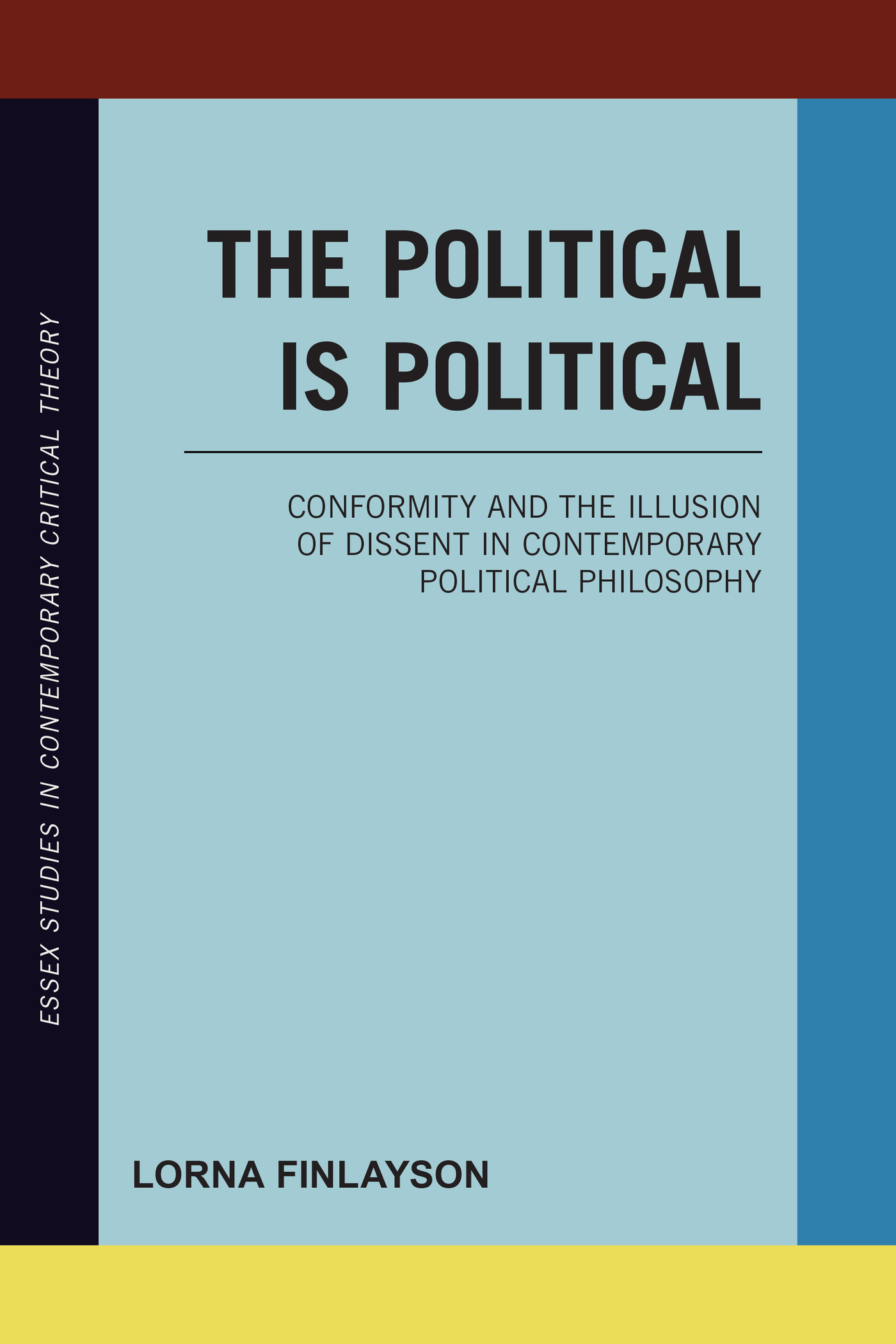The Political Is Political
Essex Studies in Contemporary
Critical Theory
Series editors: Peter Dews, Professor of Philosophy at the University of Essex; Fabian Freyenhagen, Reader in Moral and Political Philosophy at the University of Essex; Steven Gormley, Lecturer in Philosophy at the University of Essex; Timo Jtten, Lecturer in Philosophy at the University of Essex; and Jrg Schaub, Lecturer in Philosophy at the University of Essex
The Essex Studies in Contemporary Critical Theory series aims to develop the critical analysis of contemporary societies. The series publishes both substantive critical analyses of recent and current developments in society and culture and studies dealing with methodological/conceptual problems in the Critical Theory tradition, intended to further enhance its ability to address the problems of contemporary society.
Titles in the Series
The Political Is Political: Conformity and the Illusion of Dissent in
Contemporary Political Philosophy, by Lorna Finlayson
The Political Is Political
Conformity and the Illusion of
Dissent in Contemporary
Political Philosophy
Lorna Finlayson

London New York
Published by Rowman & Littlefield International, Ltd.
Unit A, Whitacre Mews, 26-34 Stannary Street, London SE11 4AB
www.rowmaninternational.com
Rowman & Littlefield International, Ltd. is an affiliate of Rowman & Littlefield
4501 Forbes Boulevard, Suite 200, Lanham, Maryland 20706, USA
With additional offices in Boulder, New York, Toronto (Canada), and London (UK)
www.rowman.com
Copyright 2015 by Lorna Finlayson
All rights reserved. No part of this book may be reproduced in any form or by any electronic or mechanical means, including information storage and retrieval systems, without written permission from the publisher, except by a reviewer who may quote passages in a review.
British Library Cataloguing in Publication Information Available
A catalogue record for this book is available from the British Library
ISBN: HB 978-1-7834-8049-4
ISBN: PB 978-1-7834-8050-0
Library of Congress Cataloging-in-Publication Data
Finlayson, Lorna, 1986
The political is political : conformity and the illusion of dissent in contemporary political philosophy / Lorna Finlayson.
pages cm.(Essex studies in contemporary critical theory)
Includes bibliographical references and index.
ISBN 978-1-78348-286-3 (cloth : alk. paper)ISBN 978-1-78348-287-0 (pbk. : alk. paper)ISBN 978-1-78348-288-7 (electronic) 1. Opposition (Political science) 2. Dissenters. 3. Political sciencePhilosophy. I. Title.
JC328.3.F56 2015
320.01dc23
2015001366
 TM The paper used in this publication meets the minimum requirements of American National Standard for Information Sciences Permanence of Paper for Printed Library Materials, ANSI/NISO Z39.48-1992.
TM The paper used in this publication meets the minimum requirements of American National Standard for Information Sciences Permanence of Paper for Printed Library Materials, ANSI/NISO Z39.48-1992.
Printed in the United States of America
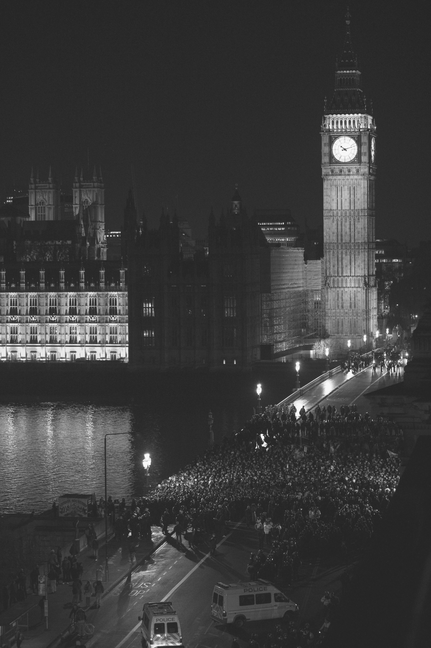
Police kettle protestors against tuition fees on Westminster Bridge, December 9, 2010. Photo: Jon Cartwright.
Acknowledgements
I am greatly indebted to the following people who read drafts of all or part of this book and gave me useful feedback and discussion: Natalia Baeza, Duncan Bell, Nick Bruton, Tim Button, Christina Cameron, Ben Colburn, John Dunn, Koshka Duff, Katharine Jenkins, Steven Methven, Basim Musallam, Sebastian Nye, Janosch Prinz, Richard Raatzsch, Diana Siclovan, Dan Swain, and the editorial board of Essex Studies in Contemporary Critical theory (especially Fabian Freyenhagen and Jrg Schaub).
Special thanks are also due to the supervisors of the dissertation which eventually turned into this book, Raymond Geuss and Hallvard Lillehammer.
A number of people have contributed support in forms intellectual, moral and alcoholic. In addition to several of the above, I would particularly like to thank Tessa Frost, Amelia Horgan, Andr Hough, Pauline and Peter Jackson, Orlando Lazar-Gillard, Louise and Steve Lock, Lucy McMahon, Clment Mouhot, Eva Nanopoulos, Remi Oriogun-Williams, Usch and William Spettigue, Wesley Wrigley, and my family: Jerry Finlayson, Caroline Wheeler, Baz Wolfram-Wheeler, Mr Finlay T. L. Wolfram and Gordon Finlayson.
Introduction
YES ITS FUCKING POLITICAL.
Skunk Anansie
Nothing could be more at odds with our stage technique than the prologue of the Euripidean drama. Having a character at the beginning of the play tell us who he is, what has preceded the action, what will happen in the course of the playa modern stage-writer would describe this as a wilful and unforgivable repudiation of the effect of suspense. We know what is going to happen, so why should we wait until it actually does?
Nietzsche
Nobody should really have to point out that political philosophy is political. What this book tries to do, nonetheless, is to point out precisely that, and to describe the conditions that make it necessary to do so.
The discipline of political philosophy is (or rather, has become) a peculiar one. Insofar as it differs from related subjects, such as political science or sociology or political theory, the difference conventionally lies in the expectation that at least part of what interests political philosophers will be the explicitly evaluative projects of prescription, recommendation, condemnation, demand and critique. But political philosophy is not just this abstractly defined activity of enquiry. It is also an institution, with its own culture, publications and community of paid professionalsand like any community, it goes through phases and fashions. This book is about the contemporary institution of political philosophy. In particular, it is about the institution of political philosophy in the Anglo-American world. It is concerned above all to expose that institutions peculiarities and to ask what they tell us: both about the parochial realm of academic political philosophy and about the wider world which (albeit increasingly halfheartedly) produces and fosters it.
This might seem already to raise a problem. This book, Ive just admitted, has as its object of study a peculiar and parochial discipline: a particular form of political philosophy, which has taken hold in a particular time and in particular places. So it seems that either I must admit that the study of this phenomenon is of very limited relevance, or else I am at risk of that much more culpable parochialism which mistakes a backwater for the whole ocean, claiming a broad or universal significance for something that is of strictly local interest.
There is a big difference, however, between the assumption that the rest of the world must be just the same as your own particular village, and on the other hand, thinking that the world is a sufficiently interconnected place that in-depth local studies may tell us something about the surrounding environment. The tradition of critical theory, to which this book is fairly heavily indebted, has as one of its characteristic features an emphasis on the interconnectedness of the social world, and the commitment to the idea that a lot can be gained from careful scrutiny of small and apparently insignificant details. My project in this book is in the same spirit: it is not that I think that a particular kind of political philosophy is the whole world, or that I think that the whole world (or even the whole of academia, or even of political philosophy) is just like it; but what I do think, and will suggest throughout, is that political philosophy is not an isolated field having nothing to do with anything else around it, but a human institution, overlapping with other human institutionsall of which inevitably bear traces of the social world in which they are embedded. If I didnt think that, I would not have bothered to write about it.

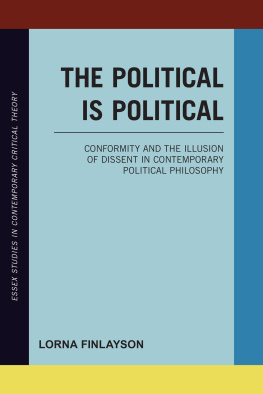
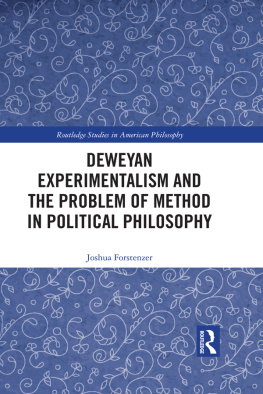
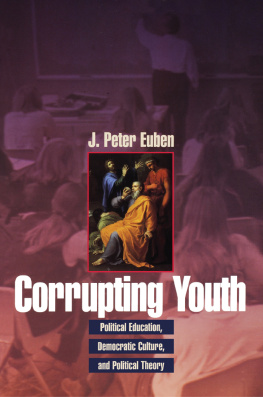

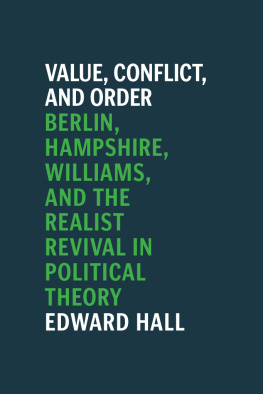
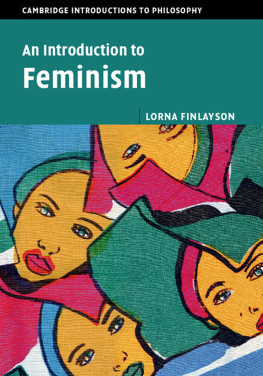
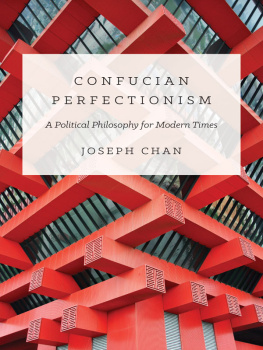
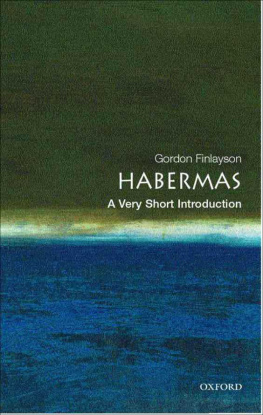
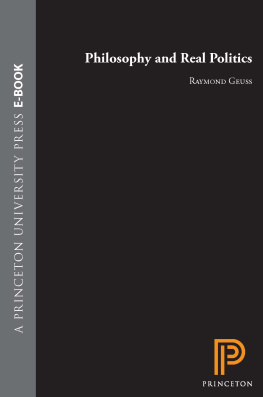
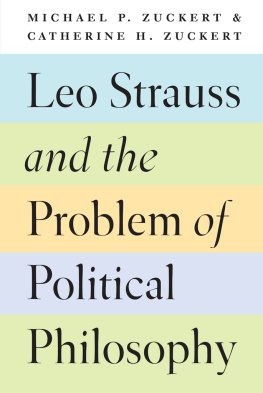
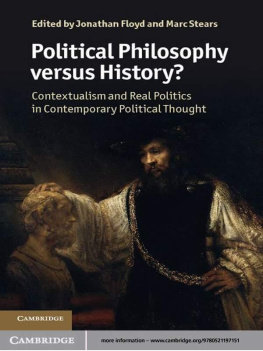

 TM The paper used in this publication meets the minimum requirements of American National Standard for Information Sciences Permanence of Paper for Printed Library Materials, ANSI/NISO Z39.48-1992.
TM The paper used in this publication meets the minimum requirements of American National Standard for Information Sciences Permanence of Paper for Printed Library Materials, ANSI/NISO Z39.48-1992.
